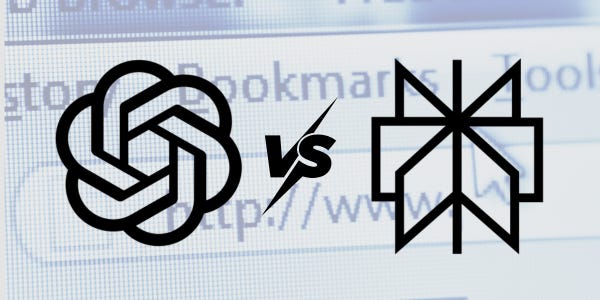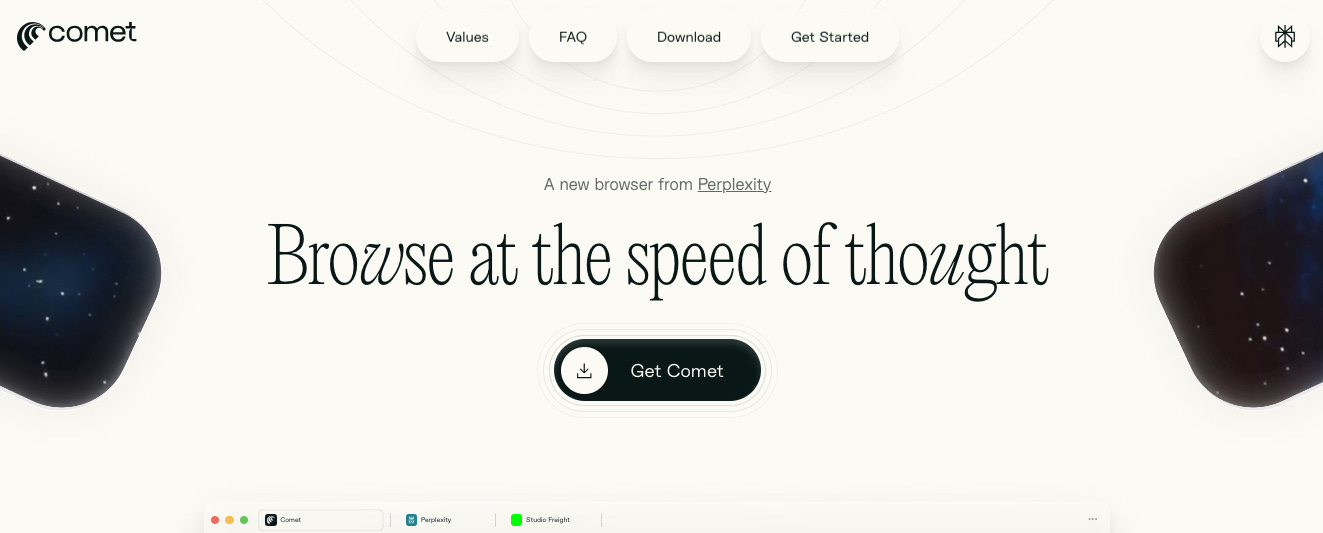The New Browser Wars (and why browsing may be over before there's even a clear winner)
From tabs to tasks: How agents are redefining the way we browse, search, and access the internet — and challenging the browsing experience all together.
We’re on the verge of a web revolution. And it starts with a new-age browser war. This time, however, the stakes aren’t about rendering speed or tab managers. It’s about whether we’ll even need browsers at all.
This week, OpenAI officially announced both its long-rumored AI-powered browser and its new Agent framework — a tool that lets ChatGPT execute multi-step tasks across the internet on your behalf. It’s a signal that the age of navigating the web manually is already giving way to something more autonomous, more intelligent, and more agentic.
And it forces us to ask two questions:
What does it really mean to have a browser powered by AI, rather than AI as a bolted-on assistant?
What happens when we no longer need to browse the web at all—because AI agents are doing it for us?
From Add-On to Operating Model
Let’s start with the browser itself. Whether it’s OpenAI’s new offering or Perplexity’s Comet, the shift from AI-as-a-feature to AI-as-a-foundation is undeniable. And, although they are both built on Google’s open source Chromium, these aren’t just Chrome clones with a chatbot baked in — they’re early blueprints of the Cognitive Operating Model: a rethinking of how AI and humans engage in workflows through thought, memory, and action.
The big shift?
AI as an add-on that reacts to you.
AI as an operating layer works with and for you.
Already, Comet is offering a glimpse of this with memory persistence, page summarization, and contextual follow-up. OpenAI’s browser will likely go further—especially when paired with its new Agent toolset.
Initially, this feels like AI is riding shotgun as you browse the web, tracking your searches and page viewing habits, providing context and relevant options alongside your traditional browsing experience. But ultimately? what to anticipate what you want and need.
The Agent Shift: From Browsing to Delegating
The Agent framework, still rolling out gradually, lets ChatGPT not only remember what you want but also scroll, click, and hover — taking the steps to make what you want happen:
Search for flights
Book reservations
Log into a site (with a human’s help)
Fill out forms
Execute code
This isn’t just about summarizing the internet. It’s about navigating and acting on it autonomously. So what happens when your browser becomes your agent’s interface — not yours?
The very idea of “browsing” starts to break down:
Instead of opening tabs, you’ll define goals.
Instead of clicking links, you’ll supervise workflows.
What Does the Future Web Even Look Like?
If this model continues, the future web becomes:
Invisible: You don’t need to see pages to use them.
Contextual: Your AI understands the why behind what you’re doing.
Personalized: Not in an ad-targeting way, but in a truly memory-aware, goal-driven way.
In that world:
SEO becomes prompt engineering.
Web design becomes agent UX design.
Navigation becomes delegation.
It also means massive disruption for:
Marketers and content creators
E-commerce and user journeys
Publishers and ad-driven revenue models
Browser or Agent: Who’s Really in Charge?
This isn’t a simple evolution of the browser. It’s a bifurcation:
One path leads to AI-native browsers that enhance our intelligence.
The other leads to AI-first agents that replace our need to browse at all.
OpenAI, by launching both a browser and an Agent system in parallel, seems to be hedging its bets—or maybe designing both tracks to converge.
What I’m Watching Carefully
In the coming months, the key signals will be:
Whether users adopt AI browsers as their daily driver: There are still a lot of questions about the stickiness of Chrome and Edge. Things like profiles with Google and Microsoft that make adoption sticky could slow shifting away from them as the primary browser.
How quickly Agent frameworks mature and gain user trust: There’s still a healthy amount of anxiety, fear, and mistrust with AI. For instance, how quickly will users become comfortable sharing information like physical addresses, credit card or banking information for an agent to complete purchases? Or giving them autonomous, unfettered access to health care data, or business systems?
Whether websites begin optimizing for agents rather than eyeballs: Most websites are still only designed for human navigation — scrolling, swiping, and capturing user attention as main drivers. But adoption for AI-first, browser-less search is already happening, and ramping up quickly as “Asking AI” becomes the norm.
This moment feels a little like the early days of Netscape vs. Internet Explorer — except with one key difference:
We’re not fighting over who gets to render the page.
We’re fighting over whether the page even matters anymore.
And that’s not just a browser war. That’s the beginning of a whole new kind of web.




